MercoPress. South Atlantic News Agency
Antarctica
-
Saturday, January 30th 2010 - 14:31 UTC
Russia and Antarctica
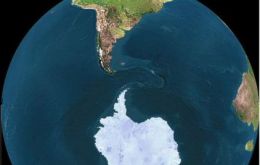
A historic discovery was made on January 28, 1820. A Russian navy expedition under the command of Faddei Bellingshausen and Mikhail Lazarev sighted the last of the remaining unexplored continents - Antarctica.
-
Tuesday, January 19th 2010 - 10:47 UTC
Fourteen cruise vessels call in South Georgia during December

Fourteen cruise ships visited South Georgia Island during December, eight of which visited during the Christmas week from the 23rd to the 29th December, according to the latest release from South Georgia’s News and Events.
-
Tuesday, January 19th 2010 - 10:15 UTC
Icebreaker Almirante Irizar expected to be operation for 2011/2012 season
Argentina expects to have its main icebreaker Almirante Irizar back in sailing conditions by October 2011 and fully operational for the 2011/2012 Antarctic season, according to reports in the Buenos Aires press.
-
Monday, January 18th 2010 - 13:31 UTC
US and NZ share the biggest wind farm in Antarctica
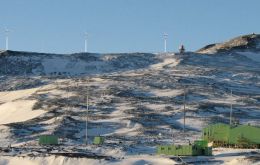
The biggest wind farm in ice covered Antarctica and which can generate enough electricity to power 500 homes, was formally switched on this weekend.
-
Thursday, January 7th 2010 - 16:38 UTC
All luxury cruise ship suffers accident in Antarctic Peninsula
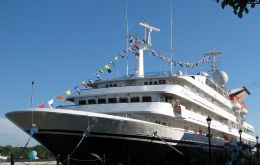
One of the most elegant expedition vessels operating in Antarctica, the Clelia II, has been withdrawn from service during January for repairs following an accident that occurred over Christmas week but is only now coming to light.
-
Wednesday, January 6th 2010 - 03:15 UTC
Major earthquake east of South Georgia & South Sandwich
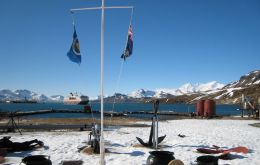
A major 6.7-magnitude earthquake struck the southern Atlantic Ocean early on Tuesday east of South Georgia and the South Sandwich Islands, a sparsely populated British territory, according to a US monitor.
-
Sunday, January 3rd 2010 - 20:07 UTC
Antarctica: Sir Douglas Mawson's monoplane found

An historic monoplane - a relic of Sir Douglas Mawson's 1911-14 expedition - has been found in Antarctica thanks to freakish luck after a three-year search.
-
Wednesday, December 16th 2009 - 23:12 UTC
Century old NZ butter found next to Scott’s camp in Antarctica

An almost 100-year-old pack of New Zealand butter, in good condition, has been found in Antarctica. The butter, bearing the maker's Fern leaf symbol and date, was found in a sack by workers at New Zealand's Scott Base, reported on Monday NZ press.
-
Thursday, December 10th 2009 - 12:08 UTC
World experts discuss in NZ safety rules for Antarctic tourism cruises
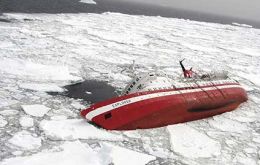
There are fears that a shipping tragedy in the Antarctic is a disaster waiting to happen if the tourism industry is not regulated. A major international meeting of Antarctic Treaty Experts is taking place in New Zealand to discuss the issues.
-
Friday, December 4th 2009 - 15:36 UTC
Ozone hole protecting Antarctic from global warming, says SCAR

The ozone hole may be boosting the risk of skin cancer, but it's also protecting Antarctica from global warming, international researchers claim in an assessment of Antarctic climate change from the geological past to the present.
